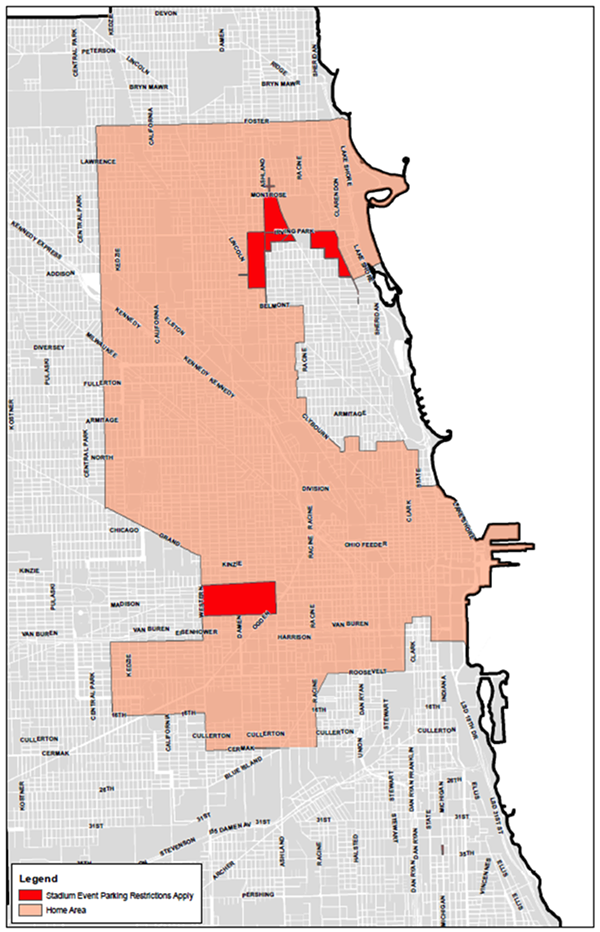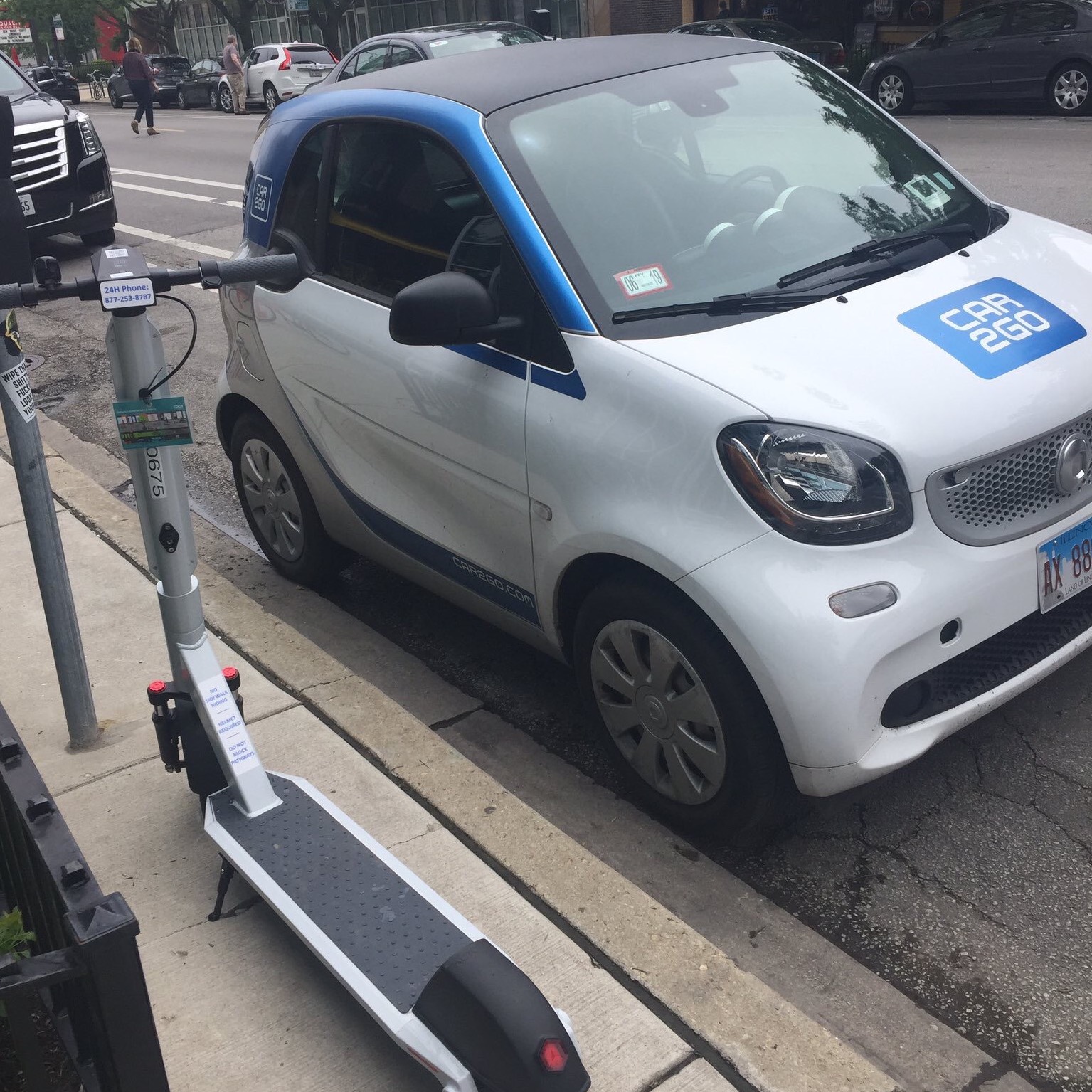Friday September 27th, I, along with thousands of other Car2go users, received an email stating that Car2go would be ceasing operations in Austin, Calgary, Denver and Portland, Oregon, effective October 31st; and Chicago effective December 31st.
I was disappointed yet not surprised. Apparently Car2go will be focusing their resources on New York City, Washington D.C., Montreal, Vancouver and Seattle, cities they believe “present the clearest path to free-floating carshare success.”
I could speculate on why Car2go’s experiment in Chicago didn't live up to their expectations but it would just be that, speculation. [Chicago's heavily-gerrymandered Car2go service area, due to alderman opting out of the pilot program because they were worried about creating a parking crunch for private car owners, certainly didn't help matters. - J.G.] But instead of lamenting the impending disappearance of Car2go, let's discuss ways to create a free-floating car-share service that could work in Chicago.
In a true multi-modal city very few people would drive because transit would be frequent, reliable, and efficient. Safe biking infrastructure that is accessible for all ages and abilities would be commonplace. Access to food, public services like libraries, community centers, schools, and entertainment, etc. could easily be reached by walking, transit, or biking. The desire to maintain curbside parking for private cars would no longer stop the city from installing dedicated lanes for fast buses or safe bicycling, and people who use the on-street car parking that remains would be charged for its true cost. Congestion pricing downtown and on expressways would be the norm. Private motor vehicles would mostly be used by people with mobility challenges, parents with small children, and people hauling heavy cargo, or as an occasional luxury. We can create these conditions in Chicago.
Car2go is definitely on to something with its point-to-point service. Whenever I told friends about the service, they liked the fact that it doesn't require a full day's rental. I found the service useful when I needed to get somewhere quickly and also wanted to be the person doing the driving. I would often use transit for one leg of my trip and Car2go for the other.

The most inconvenient aspect of Car2go in Chicago was the lack of citywide coverage. I live in Rogers Park, outside of the service zone, and had to travel to Uptown to access a car. It wasn't that big a deal compared to trying to access the service from some other parts of the city, like the Far South Side, but it was an additional hurdle.
Once the city does all it can to be truly multi-modal in an equitable way, the true value of car-share can be realized. Folks would find they don't need to own a car and can get around the city quickly and safely via transit or biking. Car share can come in handy when you have a lot of errands to do in different parts of the city or the weather is too inclement to bike. Car sharing also frees up space for parking because it can allow folks to be car free or car lite.
Years ago I read about BlueLA, an all-electric car-share service in Los Angeles aimed at lower-income individuals and families. I loved that the vehicles are electric and that the service aims to increase mobility options for folks who need them. I would love to see something similar in Chicago. Users can rent cars by the minute, hour, or day, and membership options are also available.
To make a similar system work in Chicago, reforms around taxing this and other services aimed at reducing car ownership, like Zipcar (which still operates here), would need to happen. The city must realize that a decrease in car ownership would actually be good for the city's bottom line. Transportation is the number-one source of carbon emissions in our city and state. Reducing car travel and its associated pollution can help mitigate the costs of responding to climate change.
The city could issue a request for proposals for operators of the system and choose the one that has the most equitable plan to increase Chicagoan's transportation access. I'd love to see efforts to promote the service on the Far South Side and the West Side, given the mobility challenges these communities face. Service on the Far North Side would also be important to me, given that I live in Rogers Park, and living at the edge of the city has its challenges.
Some folks say Rogers Park and many other North Side neighborhoods have a parking shortage, but to me the real problem is that we have too many cars? How many folks would feel the need to own a car if we had fast, frequent, dependable bus service, more frequent Metra service, and a network of real protected bike lanes that actually shelter cyclists from moving vehicles?
Until those things become a reality it's disingenuous to say people “need” their cars, as I've heard my own alderwoman Maria Hadden say. Chicago must right the injustices of our car-centric transportation system as we seek to become a truly multi-modal city that provides all of its residents and visitors with safe, sustainable, and dare I say, enjoyable options to get around.




